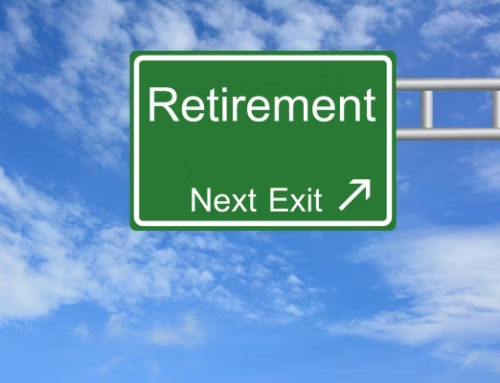You’ve worked hard your entire life to save up for retirement. Now, you have a pile of money in your 401(k)s, IRAs, houses, rental properties, and more. The question is, how much should you take out of your accounts every month once you stop working to ensure that your funds last throughout your whole retirement? Running out of money is the number one fear of retirees—no matter how much money they have.
Which accounts should you withdraw money from first? How much should you hold in cash? How will Social Security factor in? Will you have to pay income taxes, and if so, how much? If the stock market crashes again like it did in 2008, what will happen to the money and assets you’ve accumulated?
These are serious questions that require a firm with serious experience. Decker Retirement Planning has been helping retirees for more than 30 years with a proprietary methodology to address the dozens of issues that you will face in retirement. As a fiduciary retirement planner, we recommend that you find a firm like ours as soon as possible to create a custom retirement plan that will help you navigate this important phase of life and mitigate retirement risks before they happen.
Here are five of the many reasons why you should find and hire a fiduciary retirement planner:
1. A Fiduciary Retirement Planner Won’t Recommend Variable Annuities
Fixed annuities and income annuities are contracts with insurance companies which offer guarantees based on the insurance carrier’s financial strength and ability to pay claims. Some radio and media personalities make a big deal about what terrible investments fixed annuities and income annuities are. They may claim “they’re not earning much,” so you should roll them over into variable annuities, which are different.
That advice is great for brokers because variable annuities are actually invested in the market, which is how brokers make money. However, it’s not great advice for you.
In addition to being invested directly in the stock market, variable annuities have three layers of fees. There’s a fee to the broker up front: the brokers get a huge commission upon sale, and they get a fee or commission every year. The custodian, who is housing the annuity, also gets a commission or a fee every year. The mutual fund company also makes money every single year you own the variable annuity.
The mutual funds inside variable annuities are often comprised of toxic C-shares, laden with hidden fees which are destroying your performance on top of all the other fees that are associated with the variable annuity. (See number two below.)
Worse, the only guarantee that you get with a variable annuity is when you die. A lot of people who own variable annuities think that theirs are doing “great.” The reality is different when you look closely. The big “account” shown on your statement may look like it’s grown significantly, but the insurance company is going to use a special math equation to figure out how much income you will actually get for the rest of your life.
That big account they show on your statement is not your cash value or surrender value amount. The actual cash value—a different account which is also on the statement—is usually significantly lower and, quite often, has been losing money every year.
Variable annuities are sold by salespeople who work on commission, which is what brokers are.
A fiduciary retirement planner is fee-based, not commissions-based, and is required to give you advice based solely on what is best for you—even if they make no money at all on their recommendation
Variable annuities will not be recommended by a fiduciary retirement planner because almost none of them are in your best interest. Fees, especially in variable annuities, make a substantial difference in the overall accumulation or growth in your investment portfolio, especially in retirement. To put it simply, variable annuities lag the markets when the markets are up and accentuate the losses when they’re going down due to their incredibly high fees.
2. A Fiduciary Retirement Planner Won’t Let You Stay In C-Share Mutual Funds
Class C-share mutual funds are so toxic they are not even allowed on the major third-party custodian sites like TD Ameritrade or Fidelity. You have to sell them before you can proceed to hold your accounts there. Class C-shares are laden with hidden fees, yet they are still being sold by brokers and bankers because they are legally allowed. A true fiduciary retirement planner will never recommend them.
3. A Fiduciary Retirement Planner Won’t Recommend Reverse Mortgages
A reverse mortgage is seldom a good deal. Banks are in business to make money, and they almost always do. In fact, they’ve already made an enormous amount on your initial mortgage. Once you own your home, a reverse mortgage allows you to borrow money against it. The problem is that your loan balance increases over time as interest on the loan and fees accumulate.
For example, if your home appraises for $450,000, you might take a reverse mortgage against it for $200,000, in which case you’ll owe closing costs plus an upfront fee of around $4,000—or 2%—in mortgage insurance premium (MIP). The premium jumps to a whopping 2.5% if the total loan equals more than 60% of the home value. You’ll also owe ongoing premiums of 0.5% of the outstanding loan balance paid to the FHA every year.
Homeowners don’t make payments on the loan while living in the house, but in addition to MIP, there are other fees that get rolled into the overall amount of the loan, which can make things expensive if you have to leave your home for some reason—like if you have to go into a nursing home.
If the borrower (or remaining borrower or borrower’s spouse) is not living in the home as their primary residence for 12 consecutive months, the reverse mortgage will need to be paid off, which usually requires the sale of the home. Although one can never owe more than the home is worth, the loan also becomes due at the death of the last borrower. Heirs get an initial six months to deal with the loan payoff. There are other ways to plan for long-term care, just ask us.
4. A Fiduciary Retirement Planner Will Help You Generate Income And Avoid Stock (And Bond) Market Losses
One of the most difficult things you face as a retiree is figuring out how to generate a monthly income once you no longer have a paycheck coming in every month. Most brokers and bankers aren’t doing you any favors when they put all your money into a pie chart split between stocks and bonds (more bonds as you get older), with the advice to withdraw 4%. Good luck with that!
A fiduciary retirement planner, like Decker Retirement Planning, will map out your actual risk assets based on the income that you need using proprietary software, so you can sail through future market crashes unaffected. That’s just one part of the complete, year-by-year, personalized retirement plan we put together for each client, which includes monthly income sources, RMDs and income taxes, and cost of living increases.
5. A Fiduciary Retirement Planner Will Educate You About Economic History, Current Trends, And Future Outlook
Brian Decker, CEO of Decker Retirement Planning, watches markets closely and subscribes to many different services, which provide market data and economic analysis, as he has done for more than 30 years. He, along with other financial veterans, believes we are now facing four economic bubbles, and we are in uncharted, unprecedented territory.
Stock Market Bubble
The first bubble is the overvaluation of the stock market. According to the Schiller PE (price-to-earnings) Ratio, which takes the price of the S&P 500 and divides it by the average of ten years’ worth of earnings, as of October 8, 2018, the ratio was over 33.
There have only been three times that we’ve been at levels this high where stocks were overvalued this much: 1929, 1999, and 2007. Everyone knows what happened in 1930 when the Great Depression struck and in 2008 when the real estate mortgage bubble burst sending us spinning into a global recession. Less well-remembered is the 2000 tech stock bubble bust, which sent the NASDAQ plummeting by 70% and the S&P down by 50%. What will happen to the stock market by 2019 or 2020? No one knows for sure, but most experts are predicting the worst.
Real Estate Bubble
The housing affordability index as of August 2018, which compares wages to mortgage prices, is now negative. In fact, the affordability index is now at its lowest since mid-2008. Many economists see current housing market growth as an unsustainable bubble due to stagnant wages.
Bond Market Bubble
The bond market is in bubble territory worldwide. There are different types of bonds: municipal bonds, U.S. Treasury bonds, international bonds, and corporate bonds. There is a lot of demand for international bonds, and the thirst for yield is such that insanity is ensuing in purchasing debt—corporate debt and government debt—around the world.
As interest rates continue to rise, bond prices will go down, and bond funds are likely to take the whole market with them.
Debt Bubble
Debt is perhaps the biggest bubble. It has literally never been this high worldwide. This includes household debt, company debt, and national debt. Experts believe that debt is the lynchpin that will cause the next big downturn.
Decker Retirement Planning is an independent, fee-based fiduciary retirement planner. We put together comprehensive, customized retirement plans for each client. Call us at 855-425-4566 to discuss your retirement situation.
Want to learn more? Attend one of our retirement special events!





